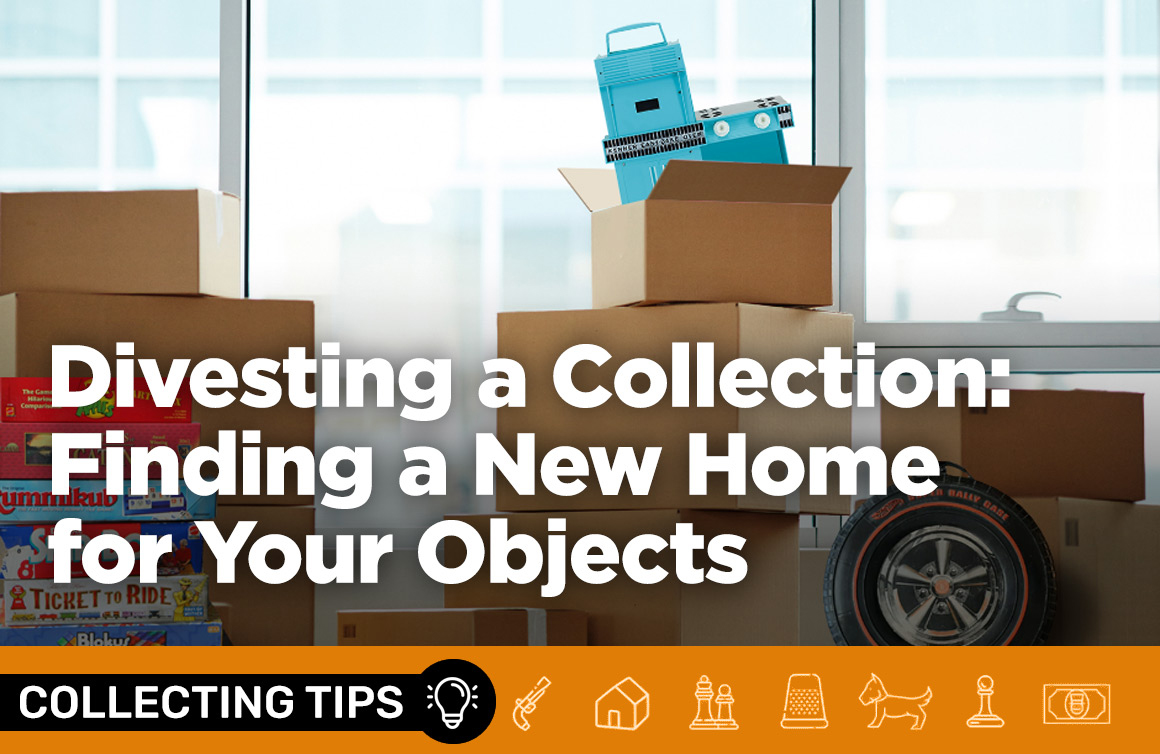You have toiled most of your adult life to amass a great collection of objects — be it games, toys, squares of dryer lint (yes, really!), or just about anything. Now you wish to divest yourself of this prized collection and you hope to keep the items together as the educational, historical, unique, or quirky group of artifacts that it is. But how does one go about this task?
What follows is some general advice drawn from 30-plus years of curating toys, games, and ephemera currently at The Strong National Museum of Play.
Cultural Institutions
Unless your collection is truly iconic, it’s probably best not to consider the Smithsonian Institution. That noble institution has massive collections already, stored offsite. So how do you find a place that might make better use of your materials?
The best approach is to contact a local museum — a history museum if possible — and ask a collections specialist there for advice. You do not need to limit yourself to a museum; libraries, archives, and other non-profit institutions such as university collections are all options to look into. Any professional person who works in these establishments should be able to guide you, and museum ethics advocate this. If they have no answer, they may guide you to a person who can provide one. Almost all these organizations have websites now and provide at least a phone number, if not an email address.
Legalities
Once you’ve located a suitable museum or other institution and have a contact there who expresses interest in your materials, they should be able to guide you through most of the legalities that follow. You’ll eventually sign a “deed of gift” document for the museum and for yourself, and it can potentially be used for tax purposes.
Appraisals
Do not expect the institution to provide an appraisal, as this poses a conflict of interest since your collection will become the institution’s property. The institution can, however, tell you if an official appraisal is worthwhile. If so, in most cases you will need to hire an appraiser and the institution will make your collection available for that person.
Keep copies of everything the institution gives you, including any thank-you it sends, and copies of the appraiser’s report. Your financial or tax advisor may play a role here, too.
Cataloguing
If you have any further documentation of your collection, purchase details, or any other pertinent information, provide the institution with this. It will make the acceptance of your gift more likely and will aid both the institution and the appraiser.
Other Considerations
CONDITIONS: If possible, do not gift the collection with special conditions. For example, no institution wants to be required to show your collection of LEGO figures yearly when other exhibits might take precedence.
ACKNOWLEDGEMENT: You can usually specify a “credit line” for use on any label when your material is shown. These are often made “in memory of,” or “in honor of,” or simply “gift of.”
USAGE: You will want to have a conversation with the institution about such things as when/if your material might be used for an exhibit and the likelihood of deaccession — the process by which a museum divests itself of materials that no longer fit its mission.
TAXES: Provide your tax preparer with the documents you’ve saved. Ideally, the appraisal will make it possible for the value of your donation to be written off if you itemize your taxes. Again, your contact at the institution should be able to guide you through most of this process and answer any questions you may have.
OUT-OF-COUNTRY: Keep in mind that if you donate material to an institution in another country, these rules, especially applied to income tax, may be different.
A Final Thought
You may expect the items in your collection to be kept together always. But if your goal is for the items to be a benefit to others, to be used towards the greater good, consider donating to a charitable institution with the understanding that it can sell the collection to subsidize itself. It is difficult for many serious collectors to consider this alternative, but my advice is to try to see the bigger picture — your years of collecting could help the world.

